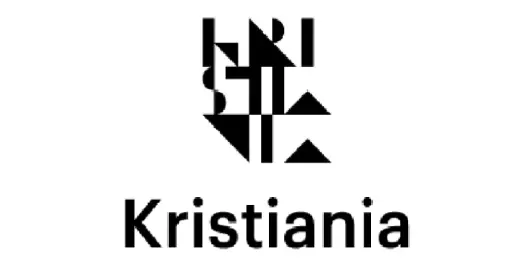Ledig stilling på Universitetet i Oslo
Blindern og Urbygningen (Foto: Wikimedia og Colourbox)
PhD research fellow in palaeoecology and ancient DNA
Deadline: 21.02.2021
Job description
Universitetet i Oslo
The University of Oslo is Norway’s oldest and highest rated institution of research and education with 28 000 students and 7000 employees. Its broad range of academic disciplines and internationally esteemed research communities make UiO an important contributor to society.
Centre for Ecological and Evolutionary Synthesis (CEES) is a research centre and a section at the Department of Biosciences, University of Oslo. CEES combines a broad spectrum of disciplines (population biology, genomics, statistics, mathematical modelling) to foster the concept of ecology as a driving force of evolution via selective processes, with a corresponding influence of evolutionary changes on ecology. CEES has over 180 members (Professors (20), postdocs/researchers (60), PhDs (35), Master’s students (40) and technical and administrative staff) and many guest researchers. The members represent 30 nationalities and constitute a vibrant and creative research environment. CEES coordinate several international networks. The budget = 170 million NOK (about 55 externally funded research projects). CEES successfully completed its 10 year status of Centre of Excellence (CoE) in 2017.
PhD position in palaeoecology and ancient DNA is available at the Centre for Ecological and Evolutionary Synthesis (CEES), Department of Biosciences (IBV), Faculty of Mathematics and Natural Sciences, University of Oslo.
No one can be appointed for more than one PhD Research Fellowship period at the University of Oslo. Starting date no later than 01.09.2021.
The fellowship will be for a period of 3 years with the possibility to apply for a 4th year with compulsory work contingent on the qualifications of the candidate and the teaching needs of the department.
Project description
The PhD fellow will be part of a multi-disciplinary, international research team working on the project EvoCave: Investigating 122 000 years of high-latitude faunal diversity using palaeozoology, archaeology, palaeoecology and ancient DNA funded by the Research Council of Norway. In this project we will excavate and analyse sediments and fossil remains from a cave deposit in northern Norway. This cave provides a rare opportunity for the comparative, interdisciplinary analyses of a high-latitude ecosystem throughout the last interglacial-glacial cycle. Exploratory excavations have discovered an extraordinarily rich fossil assemblage from a range of Arctic and boreal fauna. The postdoctoral fellow will join a strong, international team of scientists from the fields of evolutionary biology, palaeozoology, geology, geochronology, archaeology, aDNA and genomics.
The project will evaluate hypotheses on the northern limits of boreal ecosystems, mammals and humans in the Arctic and their responses to dramatic shifts in climate during a pre-industrial epoch. Two major excavations will take place (September 2021 and late summer 2022). The PhD fellow will focus on the palaeoecology of vertebrate fauna during the last 122 ka years and evaluate hypotheses on the evolutionary history and glacial survival of key Arctic and boreal species using aDNA. All data will be interpreted within the interdisciplinary framework of the project in collaboration with the project team. The PhD will work closely with a Postdoctoral fellow who focuses on quaternary geology and palaeoecology,
The EvoCave project forms a close collaboration between the CEES (IBV, University of Oslo), the University Museum of Bergen, the Department of Earth Sciences at the University of Bergen (UiB), the Norwegian University of Life Sciences (NMBU), the Centre for Palaeogenetics (Stockholm), The Arctic University Museum of Norway and the Max Planck Institute for Evolutionary Anthropology. The PhD student will be based at CEES, IBV, University of Oslo with a research visit to the Centre for Palaeogenetics in Stockholm. The PhD will be co-supervised by Prof Love Dalén.
Qualification requirements
The Faculty of Mathematics and Natural Sciences has a strategic ambition to be among Europe’s leading communities for research, education and innovation. Candidates for these fellowships will be selected in accordance with this, and expected to be in the upper segment of their class with respect to academic credentials.
- Applicants must hold a master-degree or equivalent, within evolutionary biology, genomics, population genetics, molecular ecology or a similar subject. Candidates without a Master’s degree have until 30 June, 2021 to complete the final exam. Foreign completed degree (M.Sc.-level) corresponding to a minimum of four years in the Norwegian educational system.
- Experience with DNA laboratory methods, high-throughput sequencing methods, population genetics and bioinformatics are considered important qualifications.
- Fluent oral and written communication skills in English.
- English requirements for applicants from outside of EU/ EEA countries and exemptions from the requirements can be found here.
Grade requirements
The norm is as follows:
- the average grade point for courses included in the Bachelor’s degree must be C or better in the Norwegian educational system
- the average grade point for courses included in the Master’s degree must be B or better in the Norwegian educational system
- the Master’s thesis must have the grade B or better in the Norwegian educational system
The purpose of the fellowship is research training leading to the successful completion of a PhD degree.
The fellowship requires admission to the PhD programme at the Faculty of Mathematics and Natural Sciences. The application to the PhD programme must be submitted to the department no later than two months after taking up the position. For more information see:
http://www.uio.no/english/research/phd/ and http://www.mn.uio.no/english/research/phd/
Personal skills
We seek a highly motivated, enthusiastic person with the ambition to gain insight and publish papers in leading, international journals, with strong interpersonal skills and the capability to work in close collaboration with others. Experience working in an interdisciplinary team is considered an advantage.
Host institution
The Department of Biosciences is the largest unit of biological research in Norway, working on a broad range of theoretical and empirical topics within ecology and evolution at all scales from genomes to ecosystems. Information about the department can be found at this link.
The Centre for Ecological and Evolutionary Synthesis (CEES), Department of Biosciences, University of Oslo. CEES provides a stimulating research environment with international and Norwegian scientists working on a variety of theoretical and empirical topics within ecology, evolution, population genetics, genomics, phylogenetics, molecular biology, and statistical methodology. Information about the centre can be found at: www.cees.uio.no
We offer
- Salary NOK 482 200 – 526 000 per annum depending on qualifications and seniority as PhD Research Fellow (position code 1017)
- Attractive welfare benefits and a generous pension agreement
- Vibrant international academic environment
- Career development programmes
- Oslo’s family-friendly surroundings with their rich opportunities for culture and outdoor activities
How to apply
The application must include
- Application letter including a statement of interest, briefly summarizing your scientific work and interests, and a personal assessment focusing on how you fit the description of the person we seek.
- CV (summarizing education, positions, pedagogical experience, administrative experience and other qualifying activities)
- Copies of educational certificates and transcript of records
- A complete list of publications and unpublished works, and up to 5 academic work that applicant wishes to be considered by the evaluation committee
- Names and contact details of 2-3 references (name, relation to candidate, e-mail and telephone number)
The application with attachments must be delivered in our electronic recruiting system (please follow the link “Apply for this job”). Foreign applicants are advised to attach an explanation of their University's grading system. Please note that all documents should be in English or a Scandinavian language.
Applicants may be called in for an interview.
Formal regulations
Please see the guidelines and regulations for appointments to Research Fellowships at the University of Oslo.
No one can be appointed for more than one PhD Research Fellowship period at the University of Oslo.
According to the Norwegian Freedom of Information Act (Offentleglova) information about the applicant may be included in the public applicant list, also in cases where the applicant has requested non-disclosure.
The University of Oslo has an agreement for all employees, aiming to secure rights to research results etc.
The position is conditional on the budget remaining unchanged in the final agreement with RCN.
Contact information
For further information please contact: Associate Professor Sanne Boessenkool, sanne.boessenkool@ibv.uio.no.
For questions regarding the recruitment system please contact: HR-adviser Nina Holtan, nina.holtan@mn.uio.no.
Apply for this job















